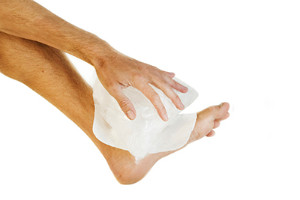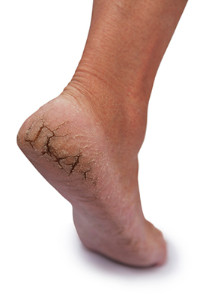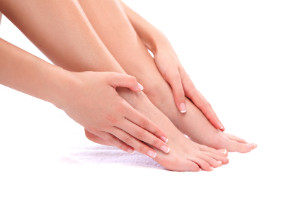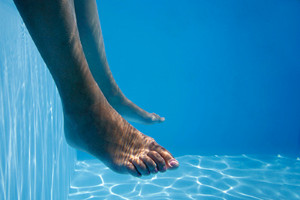Items filtered by date: July 2017
Kris Bryant Suffers Ankle Sprain
 Cubs third baseman Kris Bryant recently suffered an ankle sprain that is expected to keep him out of gameplay for at least one week. It is possible that the Cubs organization will opt to place Bryant on the 10-day disabled list to allow him time to heal and to refill his spot on the active roster. Bryant suffered the injury when he rolled his ankle trying to catch a pop-up in foul territory. In regard to the amount of time he will be sidelined, the third baseman said, “It shouldn’t be too long — I don’t think it should be.”
Cubs third baseman Kris Bryant recently suffered an ankle sprain that is expected to keep him out of gameplay for at least one week. It is possible that the Cubs organization will opt to place Bryant on the 10-day disabled list to allow him time to heal and to refill his spot on the active roster. Bryant suffered the injury when he rolled his ankle trying to catch a pop-up in foul territory. In regard to the amount of time he will be sidelined, the third baseman said, “It shouldn’t be too long — I don’t think it should be.”
Ankle sprains are common but need immediate attention. If you need your feet checked, contact one of our podiatrists from Pennsylvania. Our doctors can provide the care you need to keep you pain-free and on your feet.
How Does an Ankle Sprain Occur?
Ankle sprains take place when the ligaments in your ankle are torn or stretched beyond their limits. There are multiple ways that the ankle can become injured, including twisting or rolling over onto your ankle, putting undue stress on it, or causing trauma to the ankle itself.
What Are the Symptoms?
- Mild to moderate bruising
- Limited mobility
- Swelling
- Discoloration of the skin (depending on severity)
Preventing a Sprain
- Wearing appropriate shoes for the occasion
- Stretching before exercises and sports
- Knowing your limits
Treatment of a Sprain
Treatment of a sprain depends on the severity. Many times, people are told to rest and remain off their feet completely, while others are given an air cast. If the sprain is very severe, surgery may be required.
If you have suffered an ankle sprain previously, you may want to consider additional support such as a brace and regular exercises to strengthen the ankle.
If you have any questions please feel free to contact one of our offices located in Plymouth Meeting and Ambler, PA . We offer the newest diagnostic and treatment technologies for all your foot and ankle needs.
Preventing Cracked Heels
 Having cracked heels are a common foot condition that tends to appear during the summer months. This is mainly due to the increased flip-flop and sandal usage in warmer weather. In regards to cracked feet, studies have shown that “71 percent of women regularly suffer, while only 34 per cent of men are happy with the condition of their feet.” Cracked heels are often the result of a lack of elasticity in the skin, but there are ways you can avoid developing them. One of the most efficient ways to decrease your chances of getting cracked feet is to correct the way you walk. People who walk while putting a lot of pressure on their heels are more likely to develop cracks. Another simple way to prevent cracked heels is to moisturize. Foot balms can be used to prevent the skin on your feet from drying out.
Having cracked heels are a common foot condition that tends to appear during the summer months. This is mainly due to the increased flip-flop and sandal usage in warmer weather. In regards to cracked feet, studies have shown that “71 percent of women regularly suffer, while only 34 per cent of men are happy with the condition of their feet.” Cracked heels are often the result of a lack of elasticity in the skin, but there are ways you can avoid developing them. One of the most efficient ways to decrease your chances of getting cracked feet is to correct the way you walk. People who walk while putting a lot of pressure on their heels are more likely to develop cracks. Another simple way to prevent cracked heels is to moisturize. Foot balms can be used to prevent the skin on your feet from drying out.
Cracked heels are unsightly and can cause further damage to your shoes and feet. If you have any concerns, contact one of our podiatrists from Pennsylvania. Our doctors can provide the care you need to keep you pain-free and on your feet.
Cracked Heels
Cracked heels appear unappealing and can make it harder for you walk around in sandals. Aside from looking unpleasant, cracked heels can also tear stockings, socks, and wear out your shoes. There are several methods to help restore a cracked heel and prevent further damage.
How Do You Get Them?
Dry skin is the number one culprit in creating cracked heels. Many athletes, walkers, joggers, and even swimmers suffer from cracked heels. Age and skin oil production play a role to getting cracked heels as well.
Promote Healing
Over the counter medicines can help, especially for those that need instant relief or who suffer from chronic dry feet.
Wear Socks – Wearing socks with medicated creams helps lock in moisture.
Moisturizers – Applying both day and night will help alleviate dryness which causes cracking.
Pumice Stones – These exfoliate and remove dead skin, which allows for smoother moisturizer application and better absorption into the skin.
Change in Diet
Eating healthy with a well-balanced diet will give the skin a fresh and radiant look. Your body responds to the kinds of food you ingest. Omega-3 fatty acids and zinc supplements can also revitalize skin tissue.
Most importantly, seek professional help if unsure how to proceed in treating cracked heels. A podiatrist will help you with any questions or information needed.
If you have any questions, please feel free to contact one of our offices located in Plymouth Meeting and Ambler, PA . We offer the newest diagnostic and treatment technologies for all your foot care needs.
Ingrown Toenails 101
 If you have swelling, pain, redness, or infection near your big toe; you may have an ingrown toenail. Ingrown toenails result when the corner of a nail grows into the soft flesh that surrounds it. While ingrown toenails may cause minimal pain at first, they can spread and worsen very quickly. People who have diabetes or other serious conditions that cause poor blood flow to the feet are at a higher risk of developing ingrown toenails. Nevertheless, there are at-home remedies that can be performed in order to treat minor cases of ingrown toenails. One method is to soak your feet in warm water for 15 to 20 minutes a few times per day. Soaking will help reduce swelling along with tenderness in the feet. If you have an ingrown toenail that is progressively worsening, you should seek the assistance of a podiatrist right away.
If you have swelling, pain, redness, or infection near your big toe; you may have an ingrown toenail. Ingrown toenails result when the corner of a nail grows into the soft flesh that surrounds it. While ingrown toenails may cause minimal pain at first, they can spread and worsen very quickly. People who have diabetes or other serious conditions that cause poor blood flow to the feet are at a higher risk of developing ingrown toenails. Nevertheless, there are at-home remedies that can be performed in order to treat minor cases of ingrown toenails. One method is to soak your feet in warm water for 15 to 20 minutes a few times per day. Soaking will help reduce swelling along with tenderness in the feet. If you have an ingrown toenail that is progressively worsening, you should seek the assistance of a podiatrist right away.
Ingrown toenails can become painful if they are not treated properly. For more information about ingrown toenails, contact one of our podiatrists of Pennsylvania. Our doctors can provide the care you need to keep you pain-free and on your feet.
Ingrown Toenails
Ingrown toenails occur when a toenail grows sideways into the bed of the nail, causing pain, swelling, and possibly infection.
Causes
- Bacterial infections
- Improper nail cutting such as cutting it too short or not straight across
- Trauma to the toe, such as stubbing, which causes the nail to grow back irregularly
- Ill-fitting shoes that bunch the toes too close together
- Genetic predisposition
Prevention
Because ingrown toenails are not something found outside of shoe-wearing cultures, going barefoot as often as possible will decrease the likeliness of developing ingrown toenails. Wearing proper fitting shoes and using proper cutting techniques will also help decrease your risk of developing ingrown toenails.
Treatment
Ingrown toenails are a very treatable foot condition. In minor cases, soaking the affected area in salt or antibacterial soaps will not only help with the ingrown nail itself, but also help prevent any infections from occurring. In more severe cases, surgery is an option. In either case, speaking to your podiatrist about this condition will help you get a better understanding of specific treatment options that are right for you.
If you have any questions please feel free to contact one of our offices located in Plymouth Meeting and Ambler, PA . We offer the newest diagnostic and treatment technologies for all your foot and ankle needs.
Summertime Foot Care Tips
 Now that the warm weather is starting to approach us, you may be tempted to start wearing open toed shoes. However, it is important that you take good care of your feet so that you can be confident while wearing your favorite sandals this summer. Getting rid of the dead skin that may have built up during the winter months should be one of the first steps you take toward improving your foot health. This can be done via the natural route by using sea salt or grape seeds as exfoliants. If you still have dead skin on your feet after exfoliating, you may want to seek the assistance of a podiatrist for treatment. Another tip to have healthy feet is to make sure your toenails are cut straight across, instead of in a rounded shape. You should try to make an effort to trim your toenails every two to three weeks.
Now that the warm weather is starting to approach us, you may be tempted to start wearing open toed shoes. However, it is important that you take good care of your feet so that you can be confident while wearing your favorite sandals this summer. Getting rid of the dead skin that may have built up during the winter months should be one of the first steps you take toward improving your foot health. This can be done via the natural route by using sea salt or grape seeds as exfoliants. If you still have dead skin on your feet after exfoliating, you may want to seek the assistance of a podiatrist for treatment. Another tip to have healthy feet is to make sure your toenails are cut straight across, instead of in a rounded shape. You should try to make an effort to trim your toenails every two to three weeks.
Everyday foot care is very important to prevent infection and other foot ailments. If you need your feet checked, contact one of our podiatrists from Pennsylvania. Our doctors can provide the care you need to keep you pain-free and on your feet.
Everyday Foot Care
Often, people take care of their bodies, face and hair more so than they do for their feet. But the feet are a very important aspect of our bodies, and one that we should pay more attention to. Without our feet, we would not be able to perform most daily tasks.
It is best to check your feet regularly to make sure there are no new bruises or cuts that you may not have noticed before. For dry feet, moisturizer can easily be a remedy and can be applied as often as necessary to the affected areas. Wearing shoes that fit well can also help you maintain good foot health, as well as making it easier to walk and do daily activities without the stress or pain of ill-fitting shoes, high heels, or even flip flops. Wearing clean socks with closed shoes is important to ensure that sweat and bacteria do not accumulate within the shoe. Clean socks help to prevent Athlete’s foot, fungi problems, bad odors, and can absorb sweat.
If you have any questions please feel free to contact one of our offices located in Plymouth Meeting and Ambler, PA . We offer the newest diagnostic and treatment technologies for all your foot and ankle needs.
